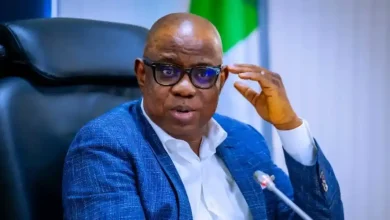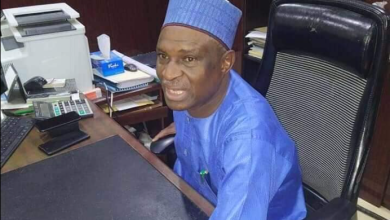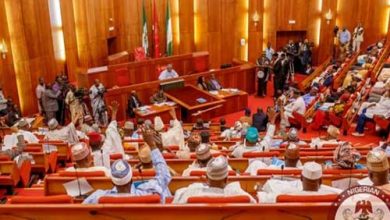IPAC Advocates for 74 Reserved National Assembly Seats for Women Ahead of 2027

The Inter-Party Advisory Council (IPAC) has redoubled its efforts to increase the presence of women in Nigerian politics in light of the next general elections in 2027.
A crucial bill that would constitutionally reserve 74 seats in the National Assembly exclusively for women is being pushed for by the council.
During a two-day empowerment conference in Abuja with the theme “Breaking the Barriers and Shaping Positive Attitudes Towards Inclusive Politics in Nigeria,” the suggestion was a major topic of discussion.
Leading voices advocating for gender equality in politics were brought together at the event, which was organized by the National Institute for Policy and Strategic Studies (NIPSS) in collaboration with IPAC’s Directorate of Women Affairs.
Yusuf Mamman Dantalle, the National Chairman of IPAC, utilized the occasion to reaffirm the council’s dedication to inclusive governance. He reiterated that IPAC would not back down in its efforts to get the measure approved by the Presidency and the National Assembly.
As a result, IPAC restates its demand that the National Assembly advance the bill that would reserve special seats for women in parliament. In order to promote greater female involvement in politics, the measure aims to allocate 74 seats to women, according to Dr. Dantalle.
IPAC said that it has established three specialized directorates devoted to women, youth, and persons with disabilities in order to institutionalize its inclusive approach. It is anticipated that these directorates would be essential in changing the dynamics of political parties and guaranteeing fair representation at all levels, from the local to the national.
Dantalle pointed out that structural injustices that have prevented women from actively participating in politics for a long time must be eradicated. These obstacles include unequal access to education, economic marginalization, and deeply ingrained cultural biases.
He emphasized that “women’s active political participation is essential to attaining inclusivity, equality, equity, and sustainable development in any democratic society.”
In his broader lobbying, Dantalle also emphasized the significance of passing the Electoral Offenses Commission law, citing its need to support accountable and clean elections.
In order to facilitate the prosecution of electoral criminals and their sponsors, the Council further calls on the National Assembly to enact the Electoral Offences Commission bill.
IPAC suggested combining Nigeria’s election days into a single-day voting paradigm as part of a larger electoral reform initiative. Citing successful precedents from the U.S., Ghana, and Sierra Leone, Dantalle said that a unified election day would ease logistics and decrease expenses.
Dantalle claimed that holding the election on a single day would save money, minimize interruption, and solve logistical issues.
Pauline Tallen, the former minister of women’s affairs, presented a more radical strategy for accelerating gender parity in the interim. To ensure that women hold at least half of all elective and appointed positions, she urged political parties to amend their constitutions.
“One solution I recommend is for all political parties to immediately amend their constitutions to create special seats for women. Parties must to require that women hold at least 50% of appointments and elective seats, she stated.
The “Zebra Policy,” a gender-based nomination process that rotates between male and female candidates on party platforms, was another measure Tallen fought for. She maintained that political parties must support social reform in their capacity as leaders.
“Political parties must take the lead in addressing religious and cultural norms that hinder women’s involvement because they are essential to governance and policy direction,” she continued.
Read Also: Timi Frank Accuses Tinubu of Blackmailing Five PDP Governors to Join APC
Tallen made a direct reference to Nigeria’s First Couple as she wrapped up her speech.
“The push for women inclusion should be spearheaded by President Bola Tinubu. Tallen urged Mrs. Oluremi Tinubu to advocate for women’s mainstreaming in Nigerian politics using her position.
Tallen bemoaned Nigeria’s dismal record for female political representation around the world. She pointed out that the country lags well behind countries like Rwanda, where women hold 64% of the legislature, with only 4.2% of seats in the National Assembly currently occupied by women.
“Nigeria must lead the way in gender mainstreaming and eliminating gender bias in politics as the Giant of Africa,” she stated.





